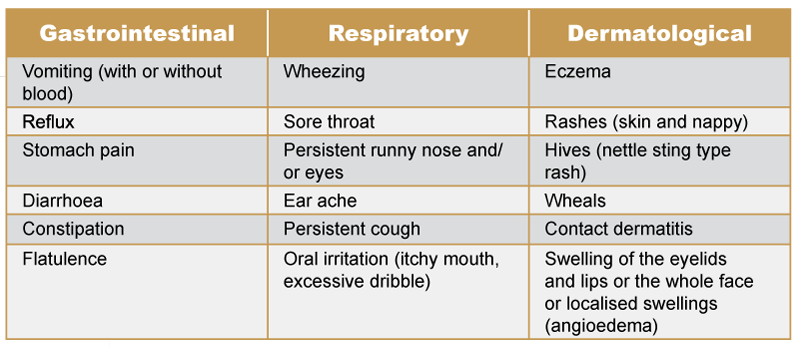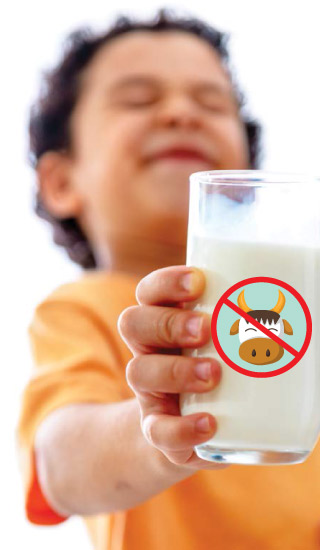Early infancy is often a very anxious time for most new parents. It is also typically during this time that most food allergies occur, of which the most common is cows’ milk protein allergy (CMPA). A food allergy is what happens when your child’s immune system mistakenly reacts to certain proteins in foods, such as those found in cows’ milk, which causes the typical symptoms. Most children will grow out of this allergy by the age of five.
Distinguishing CMPA from Lactose Intolerance
It is easy to confuse lactose intolerance and CMPA as they share many common signs and symptoms such as diarrhoea, bloated tummy, and stomach pain. However, CMPA is different from lactose intolerance, which is what happens when the digestive system is unable to fully digest lactose, mainly due to a lack of the enzyme, lactase. With lactose intolerance, the lactose in milk stays in the colon and feeds the bacteria there instead, and the subsequent build-up of acids and gases cause the various symptoms related to lactose intolerance.
Recognising the Signs of CMPA
Do bear in mind that while your child may have immediate reactions, sometimes the reactions are delayed. Immediate reactions tend to be more common during weaning while delayed reactions are more difficult to spot. Common signs and symptoms generally include excessive crying and general inability to settle. Slow weight gain and growth are often the result of a delayed diagnosis.
The other signs and symptoms you need to watch out for include:

However, there are rare cases when a more severe reaction occurs, which could include difficulty in breathing or if he/she suddenly behaves like a rag doll, i.e. he/she just ‘flops’ or seems to lose control/coordination of his limbs. Should this happen, do not delay and head for the nearest hospital immediately.
Keep Track of the Signs
It is difficult to identify if these symptoms are caused by cows’ milk protein allergy, especially since other conditions can cause similar signs or symptoms. Do seek the help of your child’s paediatrician to get a proper diagnosis; if necessary, he or she will refer you to a paediatric allergist.
Here are some useful things for you to find out beforehand as it will be a big help when you talk to your child’s paediatrician. The questions are:
- Do you know what triggers the symptoms?
- When did the symptoms first start?
- How quickly did they develop and how long do they last?
- How often do they happen?
- Are the signs/symptoms the same each time?
- Does he/she have any other allergic conditions, e.g. eczema or asthma?
- Do you or your partner have allergies or does he/she have brothers/sisters with allergies?
In most cases, it would also be helpful for you to keep a food diary for your child, or for yourself if you are still exclusively breastfeeding him. In case you have a lot of questions for your child’s paediatrician, write all your questions down before your visit and remember to bring a copy of the food diary along.
Get Expert Advice
After determining whether your child has CMPA, his/her paediatrician should be able to offer you advice on how to manage it. While the key principle for managing CMPA involves eliminating foods with cow’s milk protein from your child’s diet, this step should only be taken under the guidance of his/her paediatrician. You may also need to seek the advice of a dietitian on alternative foods that do not contain cow’s milk protein.
By working closely with your child’s healthcare team, you will be able to get a management plan in place to handle any other CMPA-related problems that may appear. Regular monitoring is also recommended as this will help ensure that your child is growing well and thriving.
An educational contribution by Malaysian Paediatric Association.






Comments